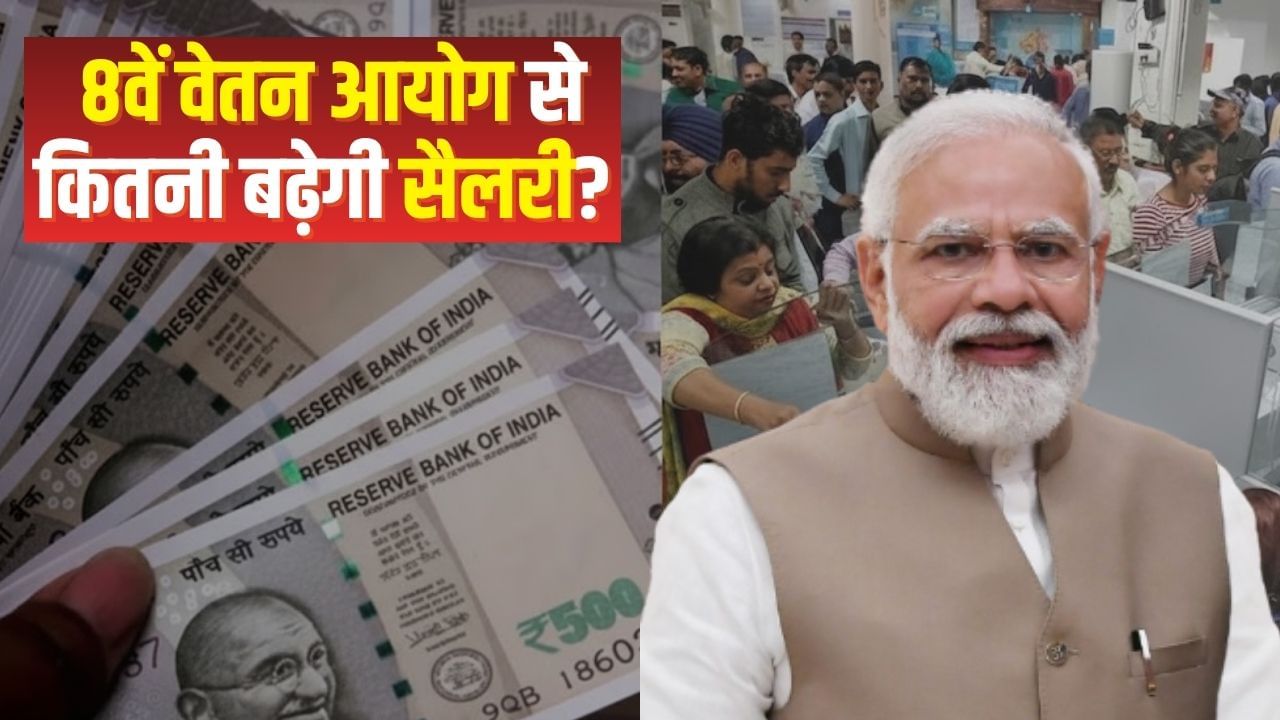8th pay commission approved
The Central Government has approved a very important news related to lakhs of its employees and pensioners. The formation of the 8th Pay Commission has finally received final approval. The ‘Terms of Reference’ (working conditions) of the Commission were passed in the cabinet meeting chaired by Prime Minister Narendra Modi. This decision is directly related to the lives of about 50 lakh central employees and 69 lakh pensioners of the country. The government had given in-principle approval for the formation of the commission in January itself, but now the way has been completely cleared for it to officially start its work. The recommendations of this commission will be considered effective from January 1, 2026.
Who will decide the new salary?
The government has handed over the command of this important commission to former Supreme Court judge Ranjana Prakash Desai, who will be its chairperson. Along with him, IIM Bangalore professor Pulak Ghosh (part-time member) and current Petroleum Secretary Pankaj Jain (member-secretary) will be part of the team. Information and Broadcasting Minister Ashwini Vaishnav gave this information after the cabinet meeting.
Also read- 8th Pay Commission approved, 50 lakh central employees will benefit
This commission will be a temporary body and has been given a time of 18 months from the date of its formation. That is, within the next one and a half years the commission will submit its recommendations to the government. This means that even before the beginning of 2026, the picture will be clear as to how much additional money is going to come into the pockets of the employees and what the new salary structure will be like.
It’s all about ‘fitment factor’
As soon as the news of formation of the commission came, the biggest discussion among the employees started regarding ‘fitment factor’. This is the important figure which will decide what your new basic salary will be. If you understand in simple language, fitment factor is the number by which your existing basic salary is multiplied and then the new basic salary is decided. For example, in the 7th Pay Commission it was fixed at 2.57. Due to this factor, the minimum basic salary at that time increased directly from Rs 7,000 to Rs 18,000 per month. This was a big leap.
However, another major change took place with the implementation of the 7th Pay Commission. Dearness Allowance (DA) was reduced to zero as the indexation was started afresh. Due to this, the actual increase in basic pay was only 14.3%, but when other allowances were added, there was a total increase of 23% in salary in the first year.
Will the history of 6th Pay Commission be repeated?
This time the expectations of the employees are also high because they have also seen the era of 6th Pay Commission (which came in 2006). That commission had recommended a historic increase of about 54% in salaries and allowances, which is considered to be the biggest gift ever given to the employees.
Despite the fitment factor of 2.57 in the 7th Pay Commission, many employee unions considered it inadequate and were demanding much more. After the bumper hike of the 6th Pay Commission, the 7th Commission’s 14.3% (original increase) seemed low to many people. Therefore, there is more pressure on the 8th Pay Commission to maintain a balance between the expectations of the employees and rising inflation.
How much can be the fitment factor?
The debate has intensified in the market and among experts as to what the fitment factor could be this time. According to media reports, this time the fitment factor can go up to 2.86. If this estimate proves correct, it will be a very good news for the employees. The factor of 2.86 means that the minimum basic pay may cross the Rs 51,000 mark. If this happens, a direct increase in the salary of employees from Rs 40,000 to Rs 45,000 is possible.
